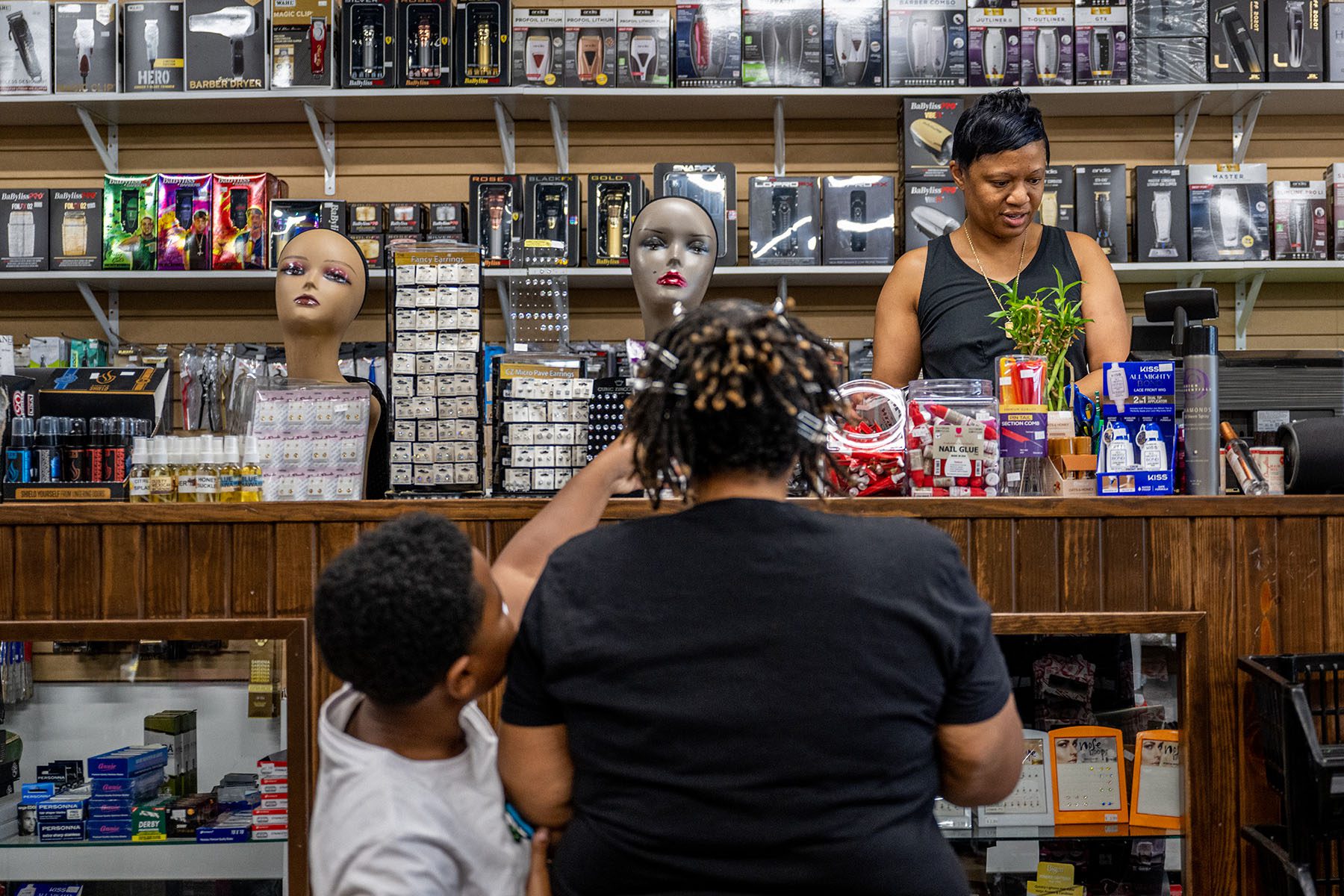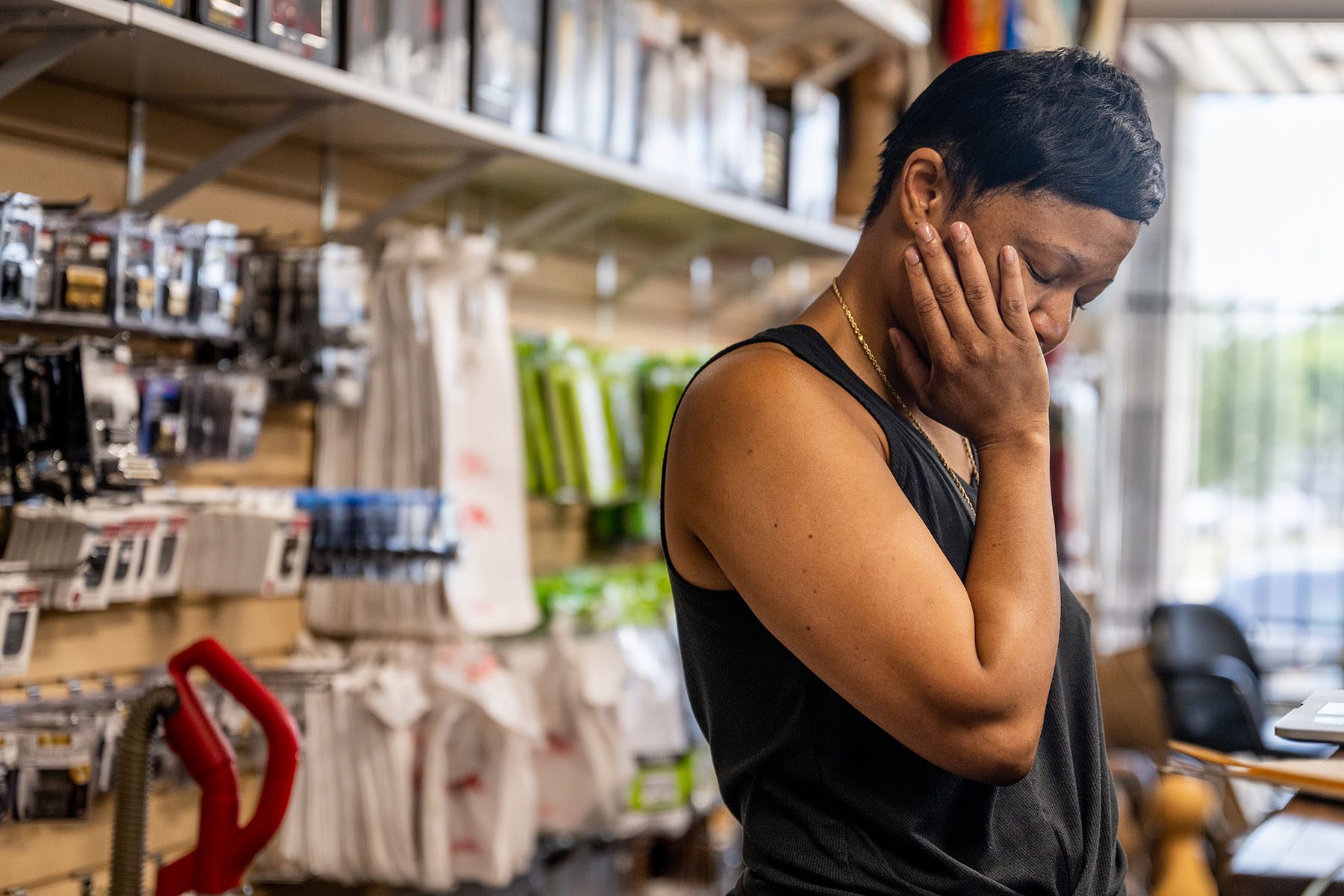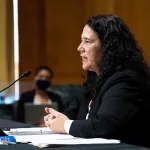We’re answering the “how” and “why” of business and economy news. Subscribe to our daily newsletter.
The United States has fallen so short in its efforts to work with women-owned small businesses that a resounding 99 percent of women entrepreneurs agree: The federal government needs to do better.
That figure, from a new survey by Goldman Sachs’ 10,000 Small Businesses Voices program, illustrates a frustration that is universally shared among women-owned businesses. The findings, first exclusively shared with The 19th, represent responses collected over the past week from nearly 900 women small-business owners across 47 states and Puerto Rico.
As many as 89 percent of women small-business owners said they feel they are not on a level playing field with men who own businesses, and 72 percent said that if they had to grade the federal government on the effectiveness of its programs, services and resources, they would give it a “C” or below.
“They feel they are not a priority in Washington,” said Janetta King, the vice president of Goldman Sachs’ 10,000 Small Businesses Voices, which helps advocate for small-business owners.
Central to that feeling of neglect are continued challenges in getting certified as a women-owned small business through the Small Business Administration (SBA). The agency promotes certification as a path to compete for more federal contracts, particularly in industries where they are underrepresented.
But the process to get certified is cumbersome and time-consuming for businesses, and many don’t feel it’s worth the struggle. Only 36 percent of the businesses surveyed by Goldman Sachs were certified, and of those, 58 percent said the process was difficult and 42 percent said they didn’t feel it was worth the benefits.
These stats highlight the long-standing challenges SBA has faced in reaching the goals of its own program.
In three decades, the agency has still met its goal of granting 5 percent of federal contracts to certified women-owned small businesses only twice — in 2015 and 2019. In 2021, the most recent year for which data is available, 4.63 percent of contract dollars went to women-owned small businesses, according to a study by the Congressional Research Survey prepared for members of Congress.
And the problem is not getting better. From fiscal year 2020 to 2021, the overall number of small businesses that were primary contractors with the federal government shrank by 6 percent, and women-owned small businesses accounted for a quarter of that decline, said Dane Stangler, the director of strategic initiatives at the Bipartisan Policy Center, a nonpartisan think tank.
“They represent a small minority of the total number, but we know for sure that they are bearing an outsized impact of this continued trend,” Stangler said.
The system has been plagued with challenges since its inception. It took the SBA a decade to implement the women-owned small-business certification program, citing challenges determining the industries in which those businesses were underrepresented in federal contracting. Many federal agencies have little experience with it, federal contracting officers routinely fail to comply with the program’s regulations, and the SBA has struggled to control fraud in the program. An audit of the program found that about 3.5 percent of women-owned small-business contracts between April 2011 and June 2018 were awarded to ineligible businesses.
Beyond the program’s foundational challenges, women business owners report that the process simply does not work for them.
Shaniece Bennett, the founder of Accutrak Consulting and Accounting Services, works with women-owned small businesses to help prepare the documentation for the certification process. Gathering all the necessary paperwork to even apply could take hours and days, she said, especially if businesses don’t pay a third party to help or have someone in house dedicated to that work.
“It’s not something that’s part of the business, [but] it’s a necessary evil [for certification] and then sometimes you may not get a return on the investment,” Bennett said.
What’s more, small businesses have to recertify every three years to remain eligible for federal dollars.

Of all the business Bennett has worked with over a decade, less than 1 percent have been awarded federal contracts. Her own business has received a government contract through the women-owned small-business program only once. A second contract was canceled.
Kate Isler, the CEO of an e-commerce marketplace for women called WMarketplace Inc., said she has yet to be successful in obtaining a federal contract. E-commerce is one of the industries excluded from competing for set-asides, or contracts that only certain small businesses can compete for within the federal government, she said. Isler did get certified, but the process for her five-person business was a significant burden.
“If you are a small business with two or three people, there is no way you can take the time to gather all the documents and work through that system,” Isler said. “The system is antiquated, and without the benefit you’re like, ‘What do I do? Do I make revenue in sales today or do I actually spend time doing this where it could pay off in 18 months?’”
There is still a benefit to certification — Isler said it has helped her network and do work with other women-owned small businesses that are also certified. But for many, the benefits don’t outweigh the cost.
The agency said in a statement that SBA Administrator Isabella Guzman is committed to making SBA a more customer-centric organization.
“A part of this effort is continual technology improvements to support a more positive customer experience for all SBA programs,” the statement said.
The number of certified women-owned firms has increased from 1,000 to more than 8,000 since 2021, the agency said, and the SBA has expanded the industries eligible for set-aside awards from 444 to more than 700. But despite these increases, the agency has limited enforcement ability. SBA set the 5 percent goal, but the money to give out contracts lives within the individual federal agencies — the Department of Defense (DOD) will ultimately award contracts as it sees fit, for example, Stangler said. And while many of those agencies are meeting the 5 percent goal, some, including the biggest ones like DOD, are not
“As well-intentioned as SBA wants to be, the scope for their impact is necessarily limited,” Stangler said.
A central solution might be in reauthorizing SBA. Congress has the authority to make changes to government programs or agencies through a process known as reauthorization, and most agencies go through that modernization process every couple of years.
The SBA is an outlier. The agency as a whole has not been reauthorized since 2000, which would allow it to update its programs, goals and technology to better serve business owners.
Bennett wants to see the “unbundling” of contract requirements, which could particularly help Black women business owners like her. For example, a construction contract may call for a requirement to have someone on staff who does auditing. While that makes sense for the federal government — why contract with five businesses when you can get all the services from one — it shuts out businesses that are not as diversified due to limited access to capital.
Black-women-owned small businesses “tend to specialize and not be a full gamut provider,” Bennett said. “If the goal is really to promote equity and diversity, then this is what has to be done. Something has to change.”
The SBA said in a statement that contract bundling has disproportionately impacted women-owned firms and contributed to the shortfall in meeting the 5 percent goal. Bundling costs women-owned small businesses about $1 billion per year in contracting opportunities, the agency estimated.
Advocates feel that the pandemic has provided an opportunity to better structure the agency to reach women-owned businesses and address pressure points, particularly since it became clear that long-standing problems accessing opportunities and capital were hindering those business owners’ economic recovery.
In April 2020 alone, the number of working women business owners dropped by 25 percent, an unprecedented figure, according to a report by the National Bureau of Economic Research. A tiny sliver of women-owned small businesses accessed Paycheck Protection Program loans, the forgivable business loan program created to offset coronavirus losses.
The reauthorization process would be the mechanism to have the conversations about how the SBA should be restructured to better serve small-business owners.
Stangler said there might be an appetite for reauthorization. The issue has bipartisan support and several lawmakers in both chambers of Congress have expressed interest. But there is still an “uphill battle making that case,” King said, among other priorities Congress is taking up this session.
“The SBA, I think, is doing a lot with what they have,” King said, “but that’s why we’re calling on Congress to go through the reauthorization process because that’s the process where you pull the curtain back, and you dig a little bit deeper and you ask those questions of, ‘Why are we not meeting those goals? And why are 99 percent of female small business owners saying that the federal government could do more to support women owned businesses?’”







